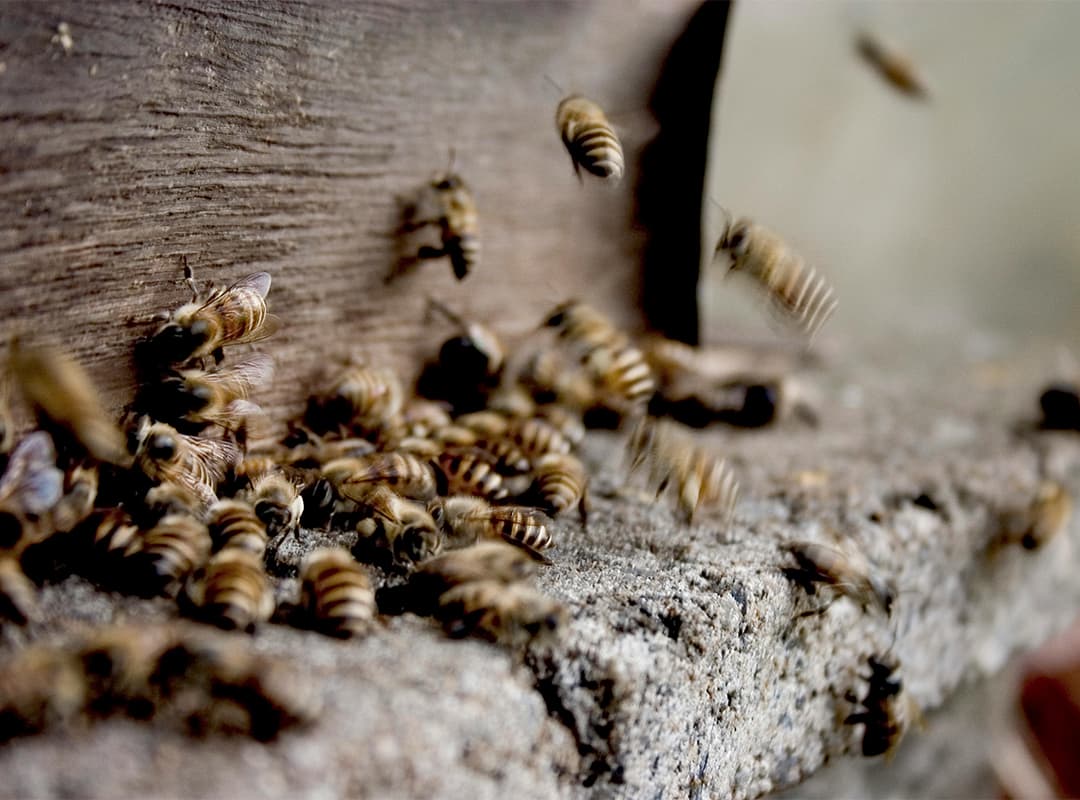Parasitoid wasps are amazing creatures that play an important role in ecosystems by controlling the abundance of their host insects. One of the key factors that determine their behavior and interactions with other species are chemicals. These chemical signals, called pheromones and allomones, influence complex chains of interactions between wasps, their hosts, competitors, and even plants. In this article, we look at how chemicals influence the behavior of parasitoid wasps and their interactions with other species.
The role of chemicals in finding hosts
One of the main tasks of parasitoid wasps is to find suitable hosts to lay their eggs. Chemicals play a key role in this process. For example, damaged plants release specific chemical signals called volatiles that attract parasitoid wasps. These substances signal the presence of insect pests feeding on the plant, which attracts wasps ready to attack these pests.
In addition, the host insects themselves can release chemical signals, such as alarm pheromones, which are picked up by wasps. These signals help wasps pinpoint the location of potential hosts. This process demonstrates how much the behavior of parasitoid wasps depends on chemical communication with the environment.
Chemical communication with competitors
Chemicals also play an important role in the interactions of parasitoid wasps with other species, including competitors. In highly competitive environments for limited resources, such as hosts, wasps can use chemical signals to suppress the activity of other individuals. For example, some wasp species secrete substances that suppress the reproduction of other females of the same species within the same territory. This reduces competition and increases their chances of successful reproduction.
At the same time, chemicals can be used to avoid competitors. Some wasps are able to recognize chemical trails left by other wasps and avoid areas where competition is already high. This helps to avoid conflict and loss of resources.
Chemical defense against predators
Chemicals can also play a protective role in helping parasitoid wasps avoid predators. Some species of wasps secrete allomones, chemicals that deter or mislead predators. For example, wasps may secrete substances that make them less attractive to predators or even mimic the chemical signals of venomous species.
These chemical strategies greatly increase the wasps’ chances of survival in highly predatory environments. Interactions through chemicals allow wasps to effectively defend themselves and avoid threats.
Chemical signals and symbiosis with plants
Interactions between parasitoid wasps and plants also occur through chemicals. In some cases, plants may emit special signals that attract wasps when they are attacked by pests. In return, the wasps help the plants by destroying the pests. This symbiotic process is a mutually beneficial interaction in which chemical signals serve as a means of coordination between plants and wasps.
In addition, some plants can secrete substances that attract wasps to protect their seeds or fruits. These complex chemical interactions demonstrate how important pheromones and other chemical signals are in maintaining balance in ecosystems.
Chemicals play a central role in the interactions of parasitoid wasps with other species, including their hosts, competitors, predators, and plants. These substances determine not only the wasps’ reproductive success, but also their ability to defend themselves, find food, and survive in challenging ecological conditions. Understanding how chemical signals affect the behavior and interactions of parasitoid wasps opens up new opportunities to apply this knowledge to ecosystem management and the development of biological control methods.
The effects of chemicals on the behavior of parasitoid wasps continue to be an important area of research in chemical ecology. Further study of these processes may lead to new discoveries that will help to better understand and maintain biodiversity and ecosystem stability.
